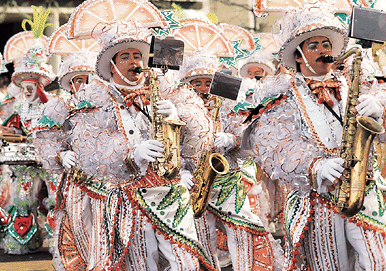Calendar Cycle Ends Today–No Apocalypse Expected
Monday, December 31st, 2012December 31, 2012
A cycle in the calendar used by most of the world ends today at midnight–but, happily, a new cycle will begin again immediately afterward as the date moves forward to 2013. In the United States, the slow descent of the Times Square New Year’s Eve Ball in New York City will mark the final seconds of the year, as the ball has every year since 1907. Crowds will gather on State Street in Chicago and in other public places as well. Many people will go to New Year’s Eve parties. At midnight, bells will ring, sirens will sound, firecrackers will explode, and everyone will shout, “Happy New Year!” Many people will also drink a toast to the new year and sing “Auld Lang Syne,” a Scottish song whose title is widely mispronounced and whose meaning is generally unknown. (It is pronounced AWLD lang SYN, not OLD ang ZINE, and means old long since, or days gone by, in Scottish dialect.)
On New Year’s Day, many people in the United States will visit relatives, attend religious services, or watch football games on television. Some people will attend parades, such as the Tournament of Roses Parade in Pasadena, California, and the Mummers Parade in Philadelphia.

The Mummers Parade features marching bands in elaborate and colorful costumes. This festive event in Philadelphia, Pennsylvania, is held annually on New Year's Day. © Joseph Nettis, Photo Researchers
The ancient Romans were the first to use January 1 as the start of the new year. In 46 B.C., Julius Caesar ordered the adoption of a new calendar because the Roman year had gotten totally out of whack. Winter occurred in September, and autumn came in the month now called July. The Romans had usually celebrated March 1 as the first day of the new year. But Caesar, who had recently picked up a 10-year appointment as dictator of Rome, officially ordered the date moved to January 1 in 45 B.C., as part of the changes mandated by the new Julian calendar.
During the Middle Ages, from about the A.D. 400′s through the 1400′s, most European countries started the new year on March 25, a Christian holiday called Annunciation Day. By 1600, many Western nations had adopted a revised calendar called the Gregorian calendar. This calendar, the one used today, restored January 1 as New Year’s Day. Great Britain (now also called the United Kingdom) and its colonies in America adopted it in 1752.
Additional World Book articles:


